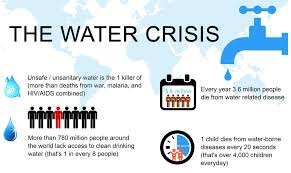Water Crisis

- The human right to safe drinking water was first recognized by the
UN General Assembly and the Human Rights Council as part of binding
international law in 2010. (UN, 2010)
- The human right to sanitation was explicitly recognized as a distinct right by the UN General Assembly in 2015. (UN, 2016)
- Studies in Africa and Asia show that the poorest 20% of the
population spend between 3 to 11% of their household income on water.
This calculation does not include the cost of the time women spend on
collecting water and managing water and sanitation facilities. (UNDP, 2006).
- Indigenous and tribal peoples care for an estimated 22% of the
Earth’s surface, and protect nearly 80% of the remaining biodiversity on
the planet, while representing only 5% of the world’s population (ILO, 2017).

No comments:
Post a Comment